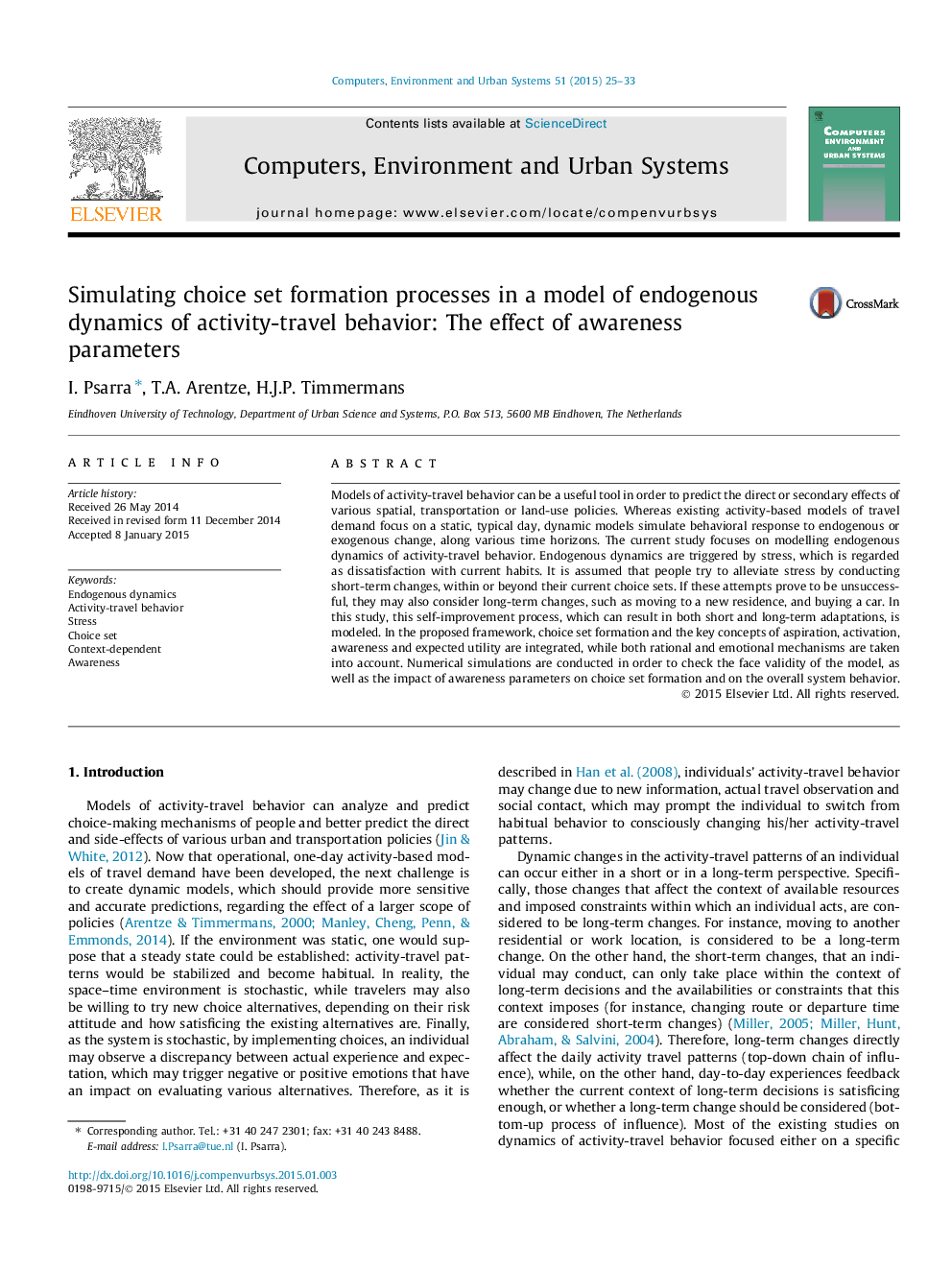| Article ID | Journal | Published Year | Pages | File Type |
|---|---|---|---|---|
| 6921977 | Computers, Environment and Urban Systems | 2015 | 9 Pages |
Abstract
Models of activity-travel behavior can be a useful tool in order to predict the direct or secondary effects of various spatial, transportation or land-use policies. Whereas existing activity-based models of travel demand focus on a static, typical day, dynamic models simulate behavioral response to endogenous or exogenous change, along various time horizons. The current study focuses on modelling endogenous dynamics of activity-travel behavior. Endogenous dynamics are triggered by stress, which is regarded as dissatisfaction with current habits. It is assumed that people try to alleviate stress by conducting short-term changes, within or beyond their current choice sets. If these attempts prove to be unsuccessful, they may also consider long-term changes, such as moving to a new residence, and buying a car. In this study, this self-improvement process, which can result in both short and long-term adaptations, is modeled. In the proposed framework, choice set formation and the key concepts of aspiration, activation, awareness and expected utility are integrated, while both rational and emotional mechanisms are taken into account. Numerical simulations are conducted in order to check the face validity of the model, as well as the impact of awareness parameters on choice set formation and on the overall system behavior.
Related Topics
Physical Sciences and Engineering
Computer Science
Computer Science Applications
Authors
I. Psarra, T.A. Arentze, H.J.P. Timmermans,
